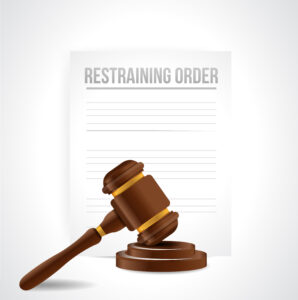 The Good, The Bad, and the Ugly: Protection Orders
The Good, The Bad, and the Ugly: Protection Orders
In the world of legal battles and courtroom drama, protection orders have become a double-edged sword, capable of both shielding the vulnerable and cutting through the fabric of justice. As an experienced lawyer in Missouri, I’ve seen it all – the good, the bad, and the downright absurd when it comes to Protection Orders, Orders of Protection or Restraining Orders.
First and foremost, let’s acknowledge the crucial role protection orders play in safeguarding individuals from domestic violence, harassment, and stalking. When used appropriately, these orders can provide a lifeline to those in need. But alas, in the wrong hands or with misguided intentions, protection orders can turn into weapons rather than shields.
Picture this: a couple in the midst of a heated argument. Harsh words fly, and emotions run high. Instead of opting for a calm resolution, one party decides to reach for the “protection order” card. It’s as if they believe wielding this piece of paper like Excalibur will vanquish their adversary. My dear readers, I assure you that protection orders are not magical swords that can slice through every disagreement. They should never be wielded as weapons of convenience.
Misused Protection Orders:
It’s disheartening to witness how protection orders are sometimes filed with little more than flimsy accusations and a dash of vindictiveness. Some individuals employ this legal tool to gain the upper hand in custody battles, divorce proceedings, or simply to settle a score. And let me tell you, the courts often play into this game unfairly.
The truth is, when someone files for a protection order, the legal system tends to lean in favor of granting it. This “better safe than sorry” approach is well-intentioned, of course. But it can lead to a slippery slope where anyone can obtain an order with little evidence and even less justification.
Now, I’m not suggesting we should make it harder for genuine victims to obtain protection orders – far from it. What I am advocating for is a thorough examination of the evidence and circumstances surrounding each case. We must ensure that protection orders are granted based on genuine need, not just on the whims of those who seek to misuse them.
Let’s add a touch of humor to this rather somber topic. Imagine if we applied the same logic to our daily lives. Can you picture walking into a bakery, pointing at a cake, and claiming, “I feel threatened by that chocolate temptation; I need a protection order against it!” While it might elicit a chuckle, it’s not that far from the reality of some protection order applications.
Here’s an Idea:
To address this issue, Missouri courts should exercise more discernment when evaluating protection order requests. This means examining the evidence, listening to both sides, and weighing the consequences of granting such an order. We need to ensure that protection orders remain a shield for the vulnerable rather than a weapon for the vindictive.
In closing, protection orders are a vital legal tool for safeguarding individuals from harm. However, they must be used responsibly and ethically. Let’s not turn these shields into swords, and let’s hold our courts accountable for their role in this process. It’s time to strike a balance between protecting the truly vulnerable and preventing the misuse of these orders. After all, justice should be blind, not blind to the misuse of its own tools.
O’Fallon, MO 63366
Phone: 636-486-1093
Fax: 636-634-3462
